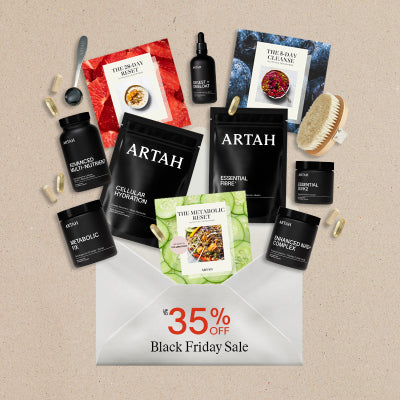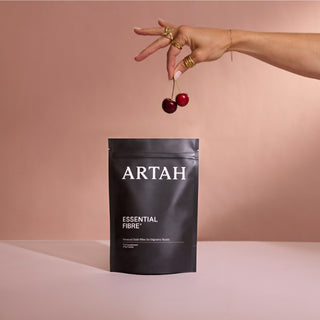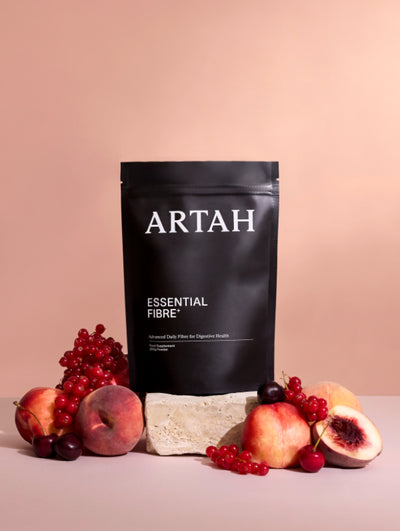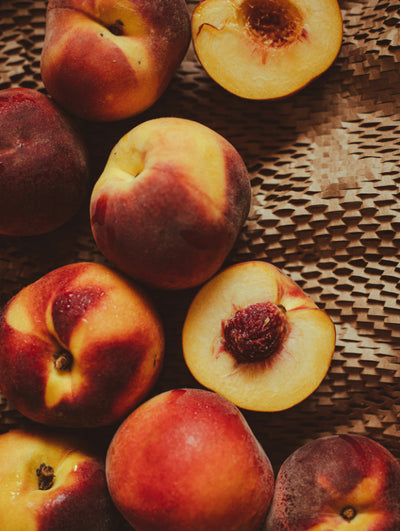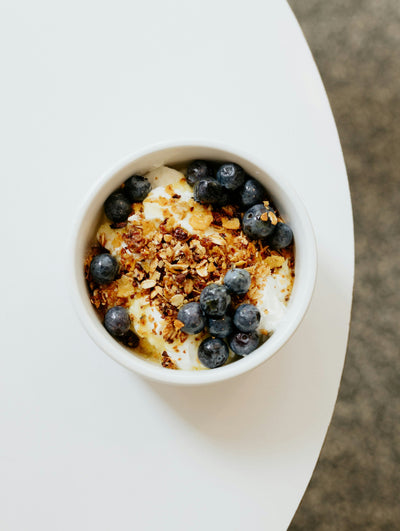The journey from pregnancy to motherhood is transformative, marked by profound physical, emotional, and hormonal changes. Between navigating sleepless nights and forging a deep connection with your little one, this chapter is as challenging as it is rewarding.
The First 1000 Days—from conception through your baby’s second birthday—are a window of immense opportunity and sensitivity, where nutrition plays a pivotal role in shaping lifelong health. Yet, despite its essential impact, advice on nourishing both you and your baby during this critical phase can feel frustratingly scarce. We're here to make things clearer. With the right knowledge, you can feel empowered to make confident, nutrient-rich choices that support your wellbeing and lay a strong foundation for your baby's growth. Unsure what to eat while breastfeeding? Here’s a quick guide to support your journey.
Nutrient needs
The increased nutrient requirements that we experience during pregnancy continue throughout the breastfeeding period, and many of us enter the breastfeeding period in an already-depleted state; common post-partum patterns in post-partum nutrient depletion include low ferritin, zinc, magnesium, and DHA1. The production of breastmilk also comes with increased requirements for nutrients such as Iron, Calcium, Iodine, Vitamin A, DHA, Choline and Folate2. Whilst it’s important to continue with a high-quality multi-nutrient to support your nutrient needs during lactation, like Enhanced Fertility and Essential Omegas, the food you eat has an enormous impact. Here’s how to get additional support from your nutrition:
-
Folate: Dark leafy greens, lentils, asparagus, spinach, artichoke, avocado, beets, mango, citrus fruit, Brussels sprouts, beans, peanuts, peas, quinoa, millet, wild rice, papaya, and banana are all food sources of Folate. Animal foods also contain Folate; for example, eggs are a good source, but fish and other meats have limited amounts, which is why plant foods should be your primary source of dietary Folate.
-
Zinc: Seafood, meat, and fish are the best sources, with oysters being the highest of any food by far. Beef, crab, prawns, pork, turkey, and sardines are also good sources. Zinc is also plentiful in plant-based foods, with oats, pumpkin seeds, nuts, lentils, tofu and tempeh being the best sources. Whilst legumes and beans are good sources of Zinc, its bioavailability is far lower than in meat. Because of this, I recommend soaking lentils and beans ahead of cooking, or using a pressure cooker, which will improve its bio-accessibility
-
Magnesium: Green leafy vegetables, pumpkin seeds, Brazil nuts, sunflower seeds, sesame seeds, almonds, cashews, avocado, cacao powder, seaweed, black beans and other legumes, tofu, salmon, buckwheat, oats, and bananas.
-
Calcium: Dairy products, sardines, leafy greens, soybeans, tofu, lentils, beans, sesame seeds/tahini, almonds, salmon, squash, figs, oats, and broccoli are all good sources of calcium. When looking at dairy sources, goat and sheep's milk cheeses have more calcium than cow’s milk varieties and may be less allergenic whilst breastfeeding.
-
Iron: The best sources of heme iron include game meats like bison and venison, beef, dark poultry meat, sardines, and clams. The best sources of non heme iron include lentils, spinach, black beans, quinoa, spirulina (1 tbsp), and broccoli, however, non heme iron is not absorbed as well as heme iron is by the body. If you struggled to maintain ferritin levels whilst pregnant, consider supplementing with Essential Iron Complex.
-
Vitamin A: Liver is the best source of Vitamin A, however, it should not be consumed in excess whilst breastfeeding. Mackerel, salmon, tuna, goat cheese and other cheeses, whole egg, trout, clams, yogurt are other good sources of pre-formed vitamin A.
-
Choline: Whole eggs, salmon, beef, soybeans, chicken breast, shitake mushrooms, yogurt, broccoli, cauliflower, Brussels sprouts, cabbage, sunflower seeds.
-
Vitamin D3: most high-quality pregnancy multi-nutrients will contain Vitamin D3, however, if you are not continuing with one, Vitamin D3 supplementation should be considered.
A note on Omega 3 fats (DHA + EPA): I always recommend supplementing with a high-quality fatty acid supplement like Essential Omegas during the perinatal period because of how essential they are to the health of both mama and baby. Studies have shown that high levels of DHA and total Omega-3's are protective against depression (2), and that there is an association between low levels of Omega-3s and Edinburgh Postnatal Depression Scores (3). When it comes to infant development, DHA is directly involved in their neural and visual development, making it an essential component of breastmilk for their healthy growth and development. A 2022 study showed that mothers who ate a Mediterranean style diet rich in food sources of Omega-3 fats produced milk with higher levels of beneficial DHA (4).
As mothers, we also need to be mindful that OUR nutrient status after pregnancy and breastfeeding also needs to be restored, which can serve as additional motivation to focus on nutrition. It can be a slow and gradual process that varies significantly depending on several factors, including pre-pregnancy nutrition, the demands of breastfeeding, and our overall diet and lifestyle. Here's what you need to know:
-
Timeframe: It can take up to 18 months for the body to fully restore its nutrient stores following pregnancy and birth. This period may be extended if a mother experiences multiple pregnancies with short intervals, prolonged breastfeeding, or enters pregnancy and breastfeeding already depleted. It’s important to address maternal depletion to avoid long term effects.
-
Micronutrients Most Affected: Key nutrients that are commonly depleted in the postnatal period include iron, calcium, vitamin B12, vitamin D, choline, zinc, iodine, selenium, and omega-3 fatty acids. For this reason, continuing a high-quality multivitamin is recommended alongside a nutrient-dense diet for 12 months post-partum.
-
Postnatal Recovery Practices: The "fourth trimester" (the first 12 weeks post-birth) is particularly important for initial recovery and replenishing nutrients. Balanced meals rich in whole foods, adequate protein, fruits, vegetables, whole grains, and hydration support ongoing recovery, healing, and milk production.
What to eat? The takeaways
-
Focus on whole, minimally processed food and avoid ultra-processed foods.
-
Increase vegetable and fruit intake, especially those which are rich in colour.
-
Healthy blood sugar is important; reduce simple sugar and refined carbohydrates, focus on low GI carbohydrates, and increase fibre.
-
Be conscious of protein; protein requirements increase significantly during pregnancy, and peak in the third trimester.
-
Don’t be afraid of healthy fats like extra-virgin olive oil, grass fed butter, coconut oil, avocado oil and organic full fat dairy products
-
Stay hydrated! Drink plenty of water and consider adding natural electrolytes to support. Cellular Hydration was a game-changer for me during breastfeeding and kept me relatively energized despite long nights of feeding.
-
Support yourself with targeted supplements like Enhanced Fertility, Essential Omegas, and Essential Iron Complex
References
(1) Dr. Oscar Serrallach, Postpartum Depletion Cure. Sphere Publishing, 2018.
(2) National Institute of Health: Meeting Maternal Nutrient Needs During Lactation. https://www.ncbi.nlm.nih.gov/books/NBK235579/
(3) Opie, R. S., Uldrich, A. C., & Ball, K. (2020). Maternal Postpartum Diet and Postpartum
Depression: A Systematic Review. Maternal and child health journal, 24(8).
(4) Mozurkewich, Ellen & Klemens, Chelsea. Omega-3 fatty acids and pregnancy: Current implications for practice. Current opinion in obstetrics & gynecology. 2012.
(5) Di Maso M, Bravi F, Ferraroni M, Agostoni C, Eussen SRBM, Decsi T, Quitadamo PA, Tonetto P, Peila C, Profeti C, Salvatori G, Kazmierska I, Decarli A, Vacca E, Bertino E, Stahl B, Moro GE. Adherence to Mediterranean Diet of Breastfeeding Mothers and Fatty Acids Composition of Their Human Milk: Results from the Italian MEDIDIET Study. Front Nutr. June 2022.9:891376.
Disclaimer: The information presented in this article is for educational purposes only and is not intended to diagnose, prevent, or treat any medical or psychological conditions. The information is not intended as medical advice, nor should it replace the advice from a doctor or qualified healthcare professional. Please do not stop, adjust, or modify your dose of any prescribed medications without the direct supervision of your healthcare practitioner.








































